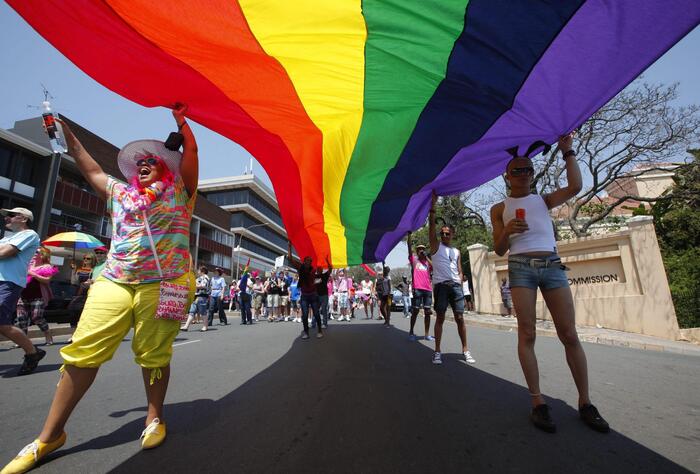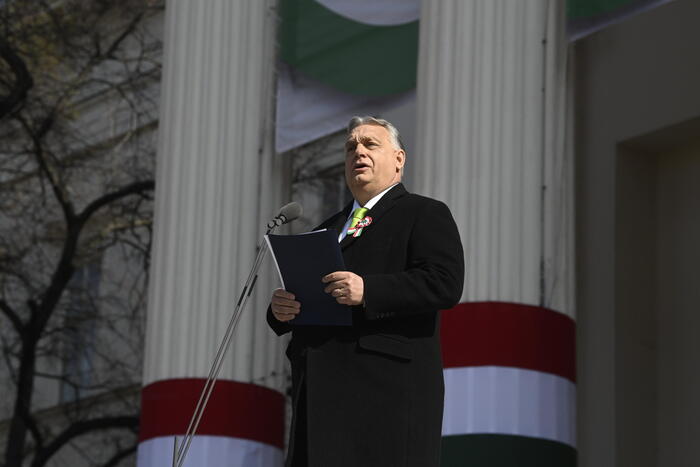MORE INFORMATION
- 30 characters that don't conform
- Hybrid literature makes its way
- Salimata Diop, the bridge of contemporary African art
The life stories of thirty lesbian, trans and bisexual women from Equatorial Guinea meet in I did not want to be a mother (Editorial Egales), the last title of the prolific author Trifonia Melibea Obono (Afaetom, Equatorial Guinea, 1982). These are issues that have been of concern for years to this researcher on gender issues and Guineo-Ecuadorian political scientist. Now he gives them the depth of the first person testimony in a book with which, according to her, "has broken the structures learned in the field work of the university."
With his affable smile but the relentless discourse against discrimination suffered by LGBTI women in his country, Melibea presented, last week, in a specialized bookstore in Chueca, in Madrid, his seventh book, whose subtitle is Lives forced by women outside the norm The work also contains an updated report on the status of the rights of this group. "The beatings do not work with women", "Two women together is a white thing", "Pregnancy brought me misfortune" or "I should have been born a man to be happy" are some of the verbal tatters of I did not want to be mother , expressions that tear any academic approach .
“The only element in common among them is having been mothers by force,” sums up the author of the novel La bastarda (Flores Rare, 2016). Or they did not want to be mothers in this way: “The majority have been violent and in adolescence. These are women who love other women, who do not want to be with men, and all ethnic groups. For them, the medicine to cure their sexual orientation is pregnancy, and the dose must be repeated until healing. His sons and daughters inherit the stigma, as collateral damage from a treatment that did not work. All of them refer to the ways in which they are forced from their own group of belonging. The family threatens, they get pregnant, they get depressed, they lock themselves up, they are ashamed because they have another gender identity and end up working in the only market that accepts them, which is prostitution. I had to let them talk about what they wanted, I couldn't ask directly about the way they get to pregnancy, because they have lived it very hard. ”
Melibea argues that they have taught him what it is to be female in his own society and, thanks to a sincere approach, he was able to connect with women from ethnic groups that he did not know, because at school they are not taught to speak languages other than Westerners. “It is the people who are systematically denied the word who report their sufferings and emotions here; reflections arise, then, in a talk that is only possible with true empathy, ”he explains. Because of the persecution and social and institutional violence, many other problems are added, such as “lack of information and referents, loss of roots, internalized hatred, drug and alcohol consumption to support marginalization and intrafamily rape ”, Adds Melibea with a disconsolate gesture.
The family threatens, they get pregnant, they get depressed, they lock themselves up, they are ashamed because they have another gender identity and end up working in the only market that accepts them, which is prostitution
It is a book that denounces the segregation suffered by any person who dares to express their gender identity or sexuality in a non-normative way, “in the African continent and in the Fang culture (of Bantu origin), in particular,” he specifies . In fact, Melibea, who, until 2016, did not participate fully in the world of activism, understood that the invisibility of what the country does not want to show is superlative in the case of people excluded by their sexual diversity. And, in some cases, more than contempt there is explicit violence. Thus, during a walk with a transsexual through the streets of Malabo, he experienced that "there was no way to circulate in the public space without receiving derogatory comments." On that walk, between teasing, a phrase was perhaps the one that marked the beginning of this project: "People like you are not from this country." It was useless for the girl to answer: "Yes, I am from Baney."
Trifonia Melibea had confirmed, after the first celebration of the LGTB cultural expression week, also in 2016, that “for Guinean society, that was something festive, a white thing in a cultural center of them and would end there, but with the second pride began to grow social and institutional tension ”. Then they already took the photographs they had exhibited and everyone understood that this was not a "white thing".
Vague and thugs from Malabo
In an authoritarian state, with barely half a century of history as an independent country, having lived decades as a colony of Franco's Spain, there are still regulations "against lazy and thugs", like those of forty years ago in Spain, to repress "the vices ”, In the words of the authorities themselves. Thus, the Government argues that it has the "good will" to listen to what the people are asking for, and that it is the Equatoguinean society that wants to "eradicate such harmful practices." Melibea reports that, after last year's pride , the Government issued a statement "expressing concern" over a "colossal increase in advertising and exhibitionism of both heterosexuals and homosexuals, prostitution and sexual promiscuity."
In the presentation dialogue of the book, together with Gerjo Pérez Meliá, of LesgaiCineMad, it was argued that if until now there has been no law prohibiting homosexuality, the fact that so many people are daring to leave the closet has led to the government of Equatorial Guinea to consider "a package of measures to pursue and limit these behaviors, whether native or expatriate." These measures could include, as read verbatim in official offices, "sanctions in order to reduce these activities, for the protection of the Equatorial Guinean family as the basis of society, as well as the public image of the country."
In this context, the moral and demographic duty of having children and the coercion of women are reinforced, with special emphasis on those who believe they must be mothers to cure their homosexuality. Although not everything is attributable to colonial laws, as the researcher makes clear, she has investigated the ideology, discriminatory practices and even the etymology of words with which gays and lesbians are designated in each ethnic group, and has concluded that "all ethnicities are patriarchal, and although, in some you can find some trait of matrilinearity, this means that, by that line of kinship, men in the mother's family send."
The author also emphasizes how much intersection there is in the way in which discrimination is exercised, since it is not the same to be single and LGBT than to be of a minority and homosexual group or to be and to belong or not to the Catholic Church. In any case, precariousness and disease have set too many teens and young lives on fire in Equatorial Guinea; even beyond what they have done with other groups in their own continent: “Our day to day is much riskier than organizing a World Pride . With the very high figures of HIV and AIDS and the deficit of primary care in Guinea, we are from wake to wake. ” His writing of a Guinean-Ecuadorian mother will continue to try to redeem those lives.
You can follow PLANETA FUTURO on Twitter and Facebook and Instagram, and subscribe here to our newsletter.







